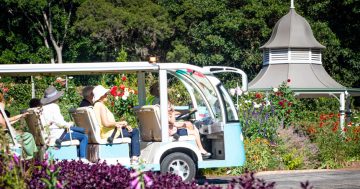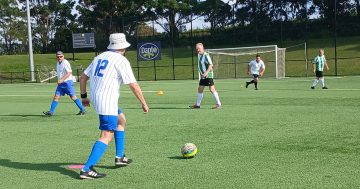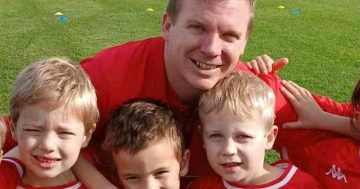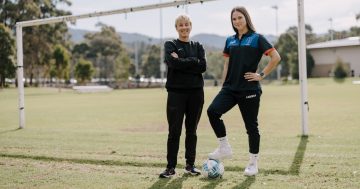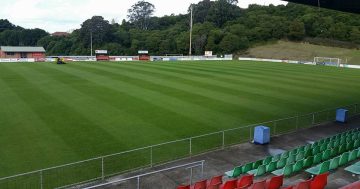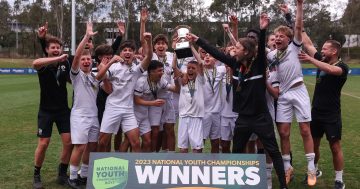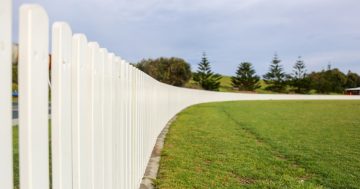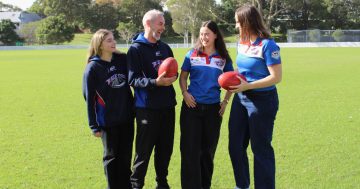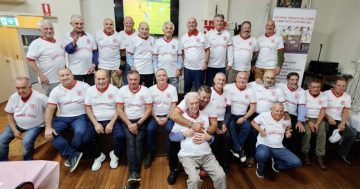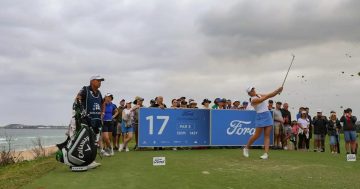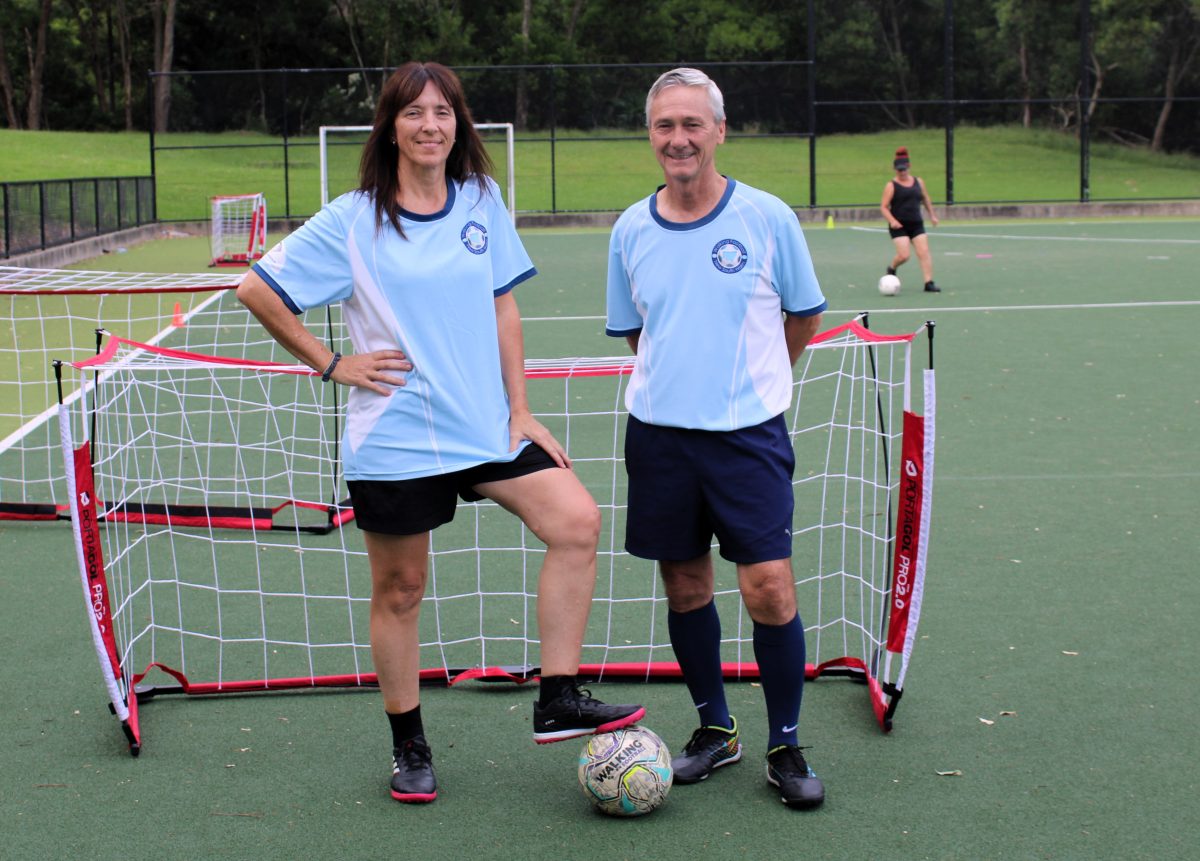
Tanya Sabell and Nick Greathead hope to attract more players to walking football. Photos: Keeli Royle.
Wollongong Walking Football Club is encouraging more women to kick a ball, with a free program throughout February introducing players to the inclusive sport.
Walking football is a modified version of the world game aimed at women over 40 years of age and men over 50 as a low impact and safe option for players to return to social sport.
Nicholas Greathead joined the club a few years back and has watched players reap the physical, social and mental benefits which often are unavailable to people over a certain age.
“There’s a big gap where people don’t do a lot of sports,” he said.
“Football traditionally is not seen as a sport for older people, it’s seen as a sport for younger people, and that’s why walking football was developed.”
The game uses a specially designed low bounce ball and smaller goals to limit the play to feet and legs, with the elimination of running also helping to reduce the risk of injury.
And with various other modifications available such as team sizes and whether there are goalkeepers, there are opportunities for people of all skill levels to get involved.
“It ranges from really social to people who have never ever played before up to a couple of people inside the club who have represented Australia and some who are going to represent Australia again this year,” Nicholas said.
But despite its growing popularity, it can still be difficult for the club to attract players.
“The hardest thing for us is getting people to understand that it’s here,” Nicholas said.
“When you tell people you play walking football they always say, ‘What’s walking football?
“And the biggest problem is that most people when they get older tend to be a bit more isolated so might not get on social media and it’s very hard to advertise.”
One cohort the club has found particularly difficult to connect with is females.
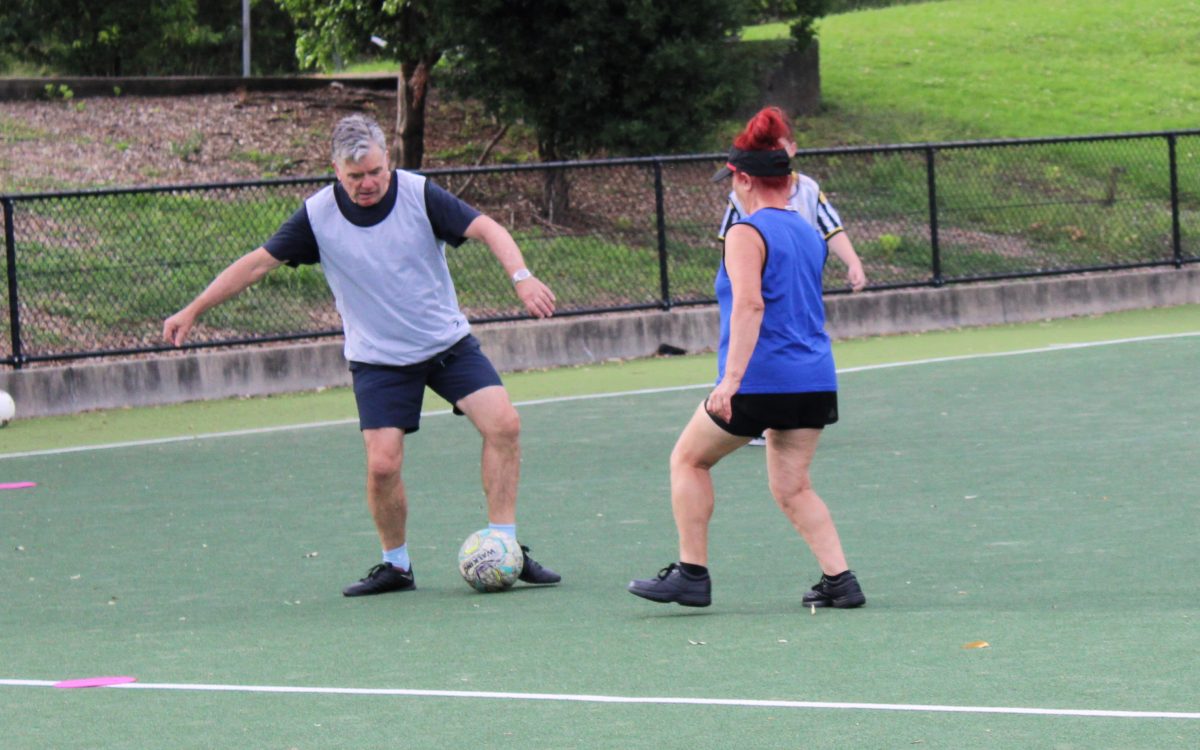
Walking football has been growing in popularity in the region.
Tanya Sabell played football a lot when she was younger and was immediately interested in the idea when she came across a promotion for walking football online.
“I hadn’t played for over 20 years, so I was intrigued, but I was really excited at the same time,” she said. “I really missed playing but hadn’t been able to do it because of joint pain and issues.
“I turned up here about a year and a half ago and just loved it and haven’t looked back since.”
Since joining, Tanya has represented at various levels and formed strong friendships within the sport.
“For me I didn’t really have much of a social life before this and now this takes me not just to weekly games and hanging out with like-minded people – there are competitions interstate and also around NSW, and that means that we travel together and a lot of the people in this club have gotten quite close.”
But as the club has grown, the number of women involved has remained low.
“When I started there was only seven people here and now we always get over 20 players and in better weather it’s usually around 25, but the only thing that hasn’t really increased is the ladies’ participation,” she said.
“It will be good just for our club essentially to have a bit more of a balance between men and women; at the moment we have six or seven women and the rest are males.”
She said the low attendance by women could make it difficult to attract more.
“Just historically, more women haven’t played soccer of my generation and older,” Tanya said.
“It’s not that women aren’t as capable, because it is a social thing, but I think for women to feel more comfortable they need to feel like there’s more of them around and that they’re a bit more seen and a bit more considered.”
The club is launching a free weekly program for females on Wednesday evenings throughout February to help introduce more to the game.
“If you’re sitting at home by yourself and you’re not doing anything and you’re able to walk around, we advise you to come out and have a go,” Nicholas said.
“We run coaching courses for people; we teach people how to do it; we run through the rules, and that’s the idea of the program, to try and attract more players.”
The club hopes to achieve a 50/50 participation rate and help grow the local competition to create more opportunities for players in the Illawarra.
‘Women Who Walk’ sessions kick off on Wednesday 7 February at 5:30 pm at the University of Wollongong hockey fields.
To get involved or to find out more, visit the Wollongong Walking Football Club Facebook group or contact Tanya Sabell.








